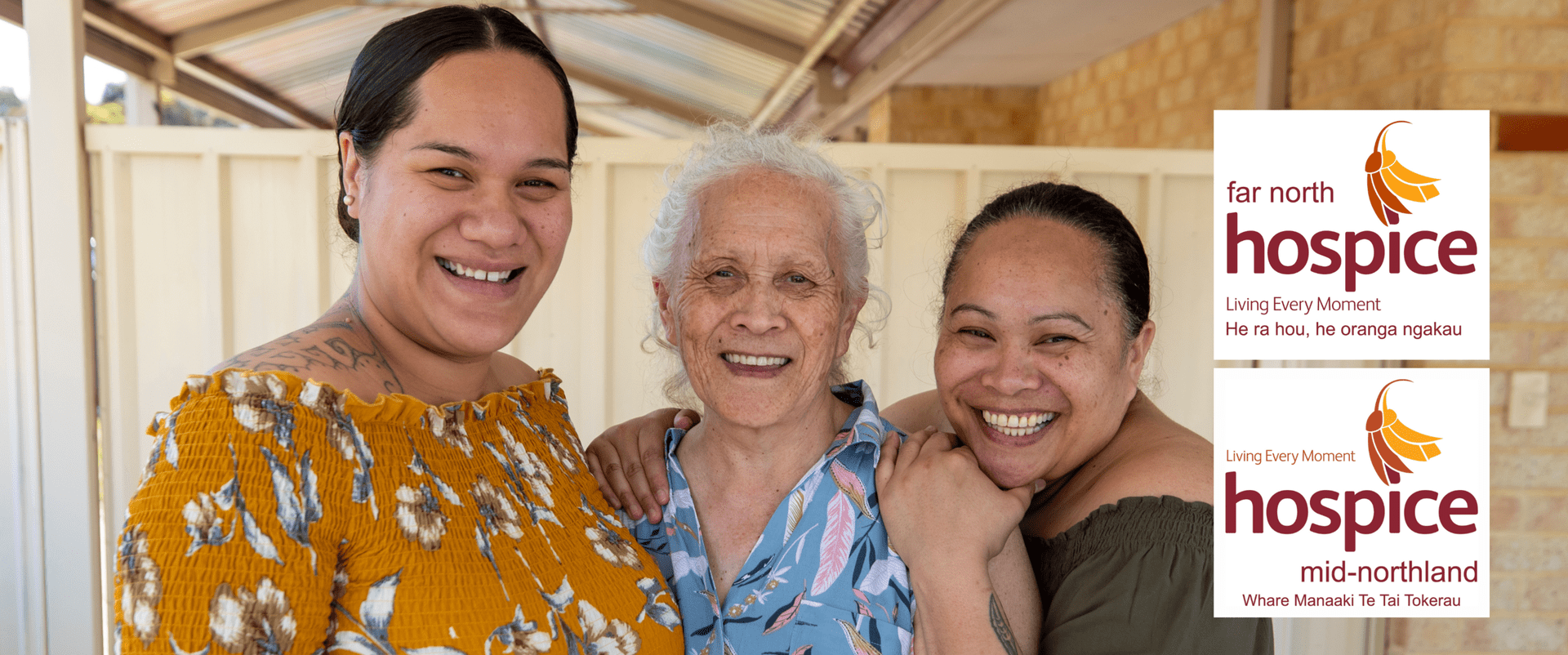Frequently Asked Questions
Our patients and their families usually have many questions when they first decide to contact us, these are some of the common ones. In addition to Frequently Asked Questions, our website lists a number of useful links in relation to Hospice and palliative care.
If an answer to a question that you have is not included, please do contact us we like to hear from you.
What is Hospice?
Contrary to popular belief, hospice is not about a building, it is a philosophy of care which extends beyond physical needs, encompassing the emotional, spiritual and social needs of a person and their family/whanau facing end of life issues.
Hospice palliative care can be provided in Hospice in-patient facilities, hospital rest homes or in a person's home or place of residence in the community. In Mid-Northland and Far North Community Hospice care is provided within the patient's home or chosen place of residence.
Hospice or palliative care is a special type of care for people whose illness is no longer curable. It enables them to achieve the best possible quality of life and also supports their family/whanau.
What care and services does Hospice provide?
Hospice provides services based on the communities need. At Hospice Mid-Northland and the Far North Community Hospice we provide nursing assessment care and on-going support, bereavement care, counselling and spiritual care, day-stay care, equipment loan, as well as education.
The services are provided by a multidisciplinary team, which may include: doctors, nurses, counsellors, spiritual counsellors, occupational therapists, physiotherapists and social workers. Many services are provided by volunteers, such as relaxing treatments.
Where is hospice or palliative care provided in Mid-Northland and Far North Community Hospice?
At home - community Hospice palliative care services work alongside the patient's own doctor and district nurses and family. Our care, services and equipment is provided free of charge to people living with life-limiting illness without our community to enable them to remain in their home.
Who can use hospice services?
Hospices can provide care for anyone who has a life limiting illness irrespective of age, religion, ethnicity or ability to pay. The majority of patients have cancer, but patients with other terminal illnesses also receive care (e.g. motor neurone disease, MS, heart failure). Our support can begin from diagnosis and is not limited to end-of-life. Please contact Clinical Manager Hannah Ledingham on 09 407 7799 to discuss your situation and how Hospice can help.
Do you have to pay for Hospice palliative care?
No, Hospice or palliative care is free of charge to patients and their families.
Mid-Northland's hospice care is funded by a 37% contribution from Te Whatu Ora, income generated from our 3 Hospice Shops in Kawakawa and Kerikeri, as well as through fundraising activity, donations and grants. Far North Community Hospice receives 50% funding and also relies on its Shop and community to raise the shortfall.
Are Hospices scary places?
Hospices are warm, caring places, which provide the highest possible standard of care to people at their most vulnerable. The emphasis is on improving a person’s quality of life and to support their family, whanau and friends.
How are referrals made?
Referrals can be made through your General Practioner doctor (GP) or other health care providers, a friend or family member, or by individuals themselves. People may be referred to Hospice as soon as a diagnosis is made and not just at the end-of-life. Please contact Clinical Manager Hannah Ledingham to discuss a referral on 09 407 7799.
How can we make sense of loss and grief?
Grief is a normal reaction to loss that can literally turn your world upside down. Your emotions, thought processes, behaviours and physical well-being are all affected by grief. There is no ‘time limit’ for resolving feelings of grief. Everyone goes through the grief process at his or her own pace and it is important to have realistic expectations about the various reactions you will experience. Grief is exhausting - look after yourself as well as you can. Find ways to let what is inside, out.
If for any reason you find that you are not managing your loss and grief and would like professional guidance, please contact our Family Support Counsellor on 09 407 7799.
<< We have provided some helpful information here

